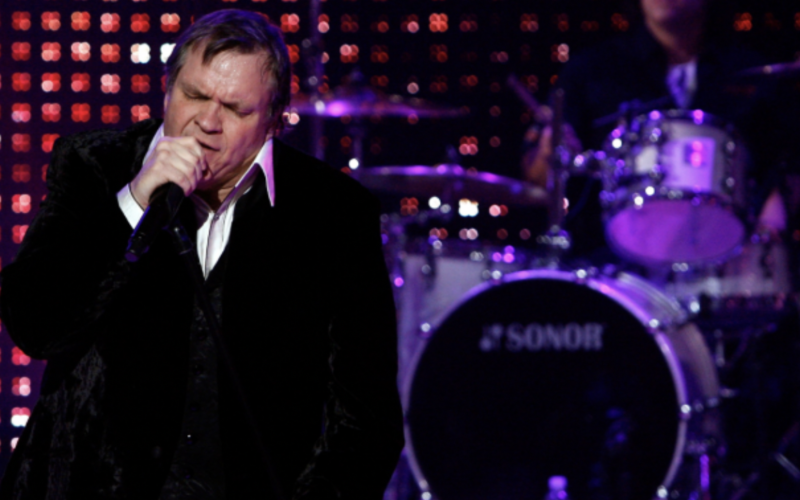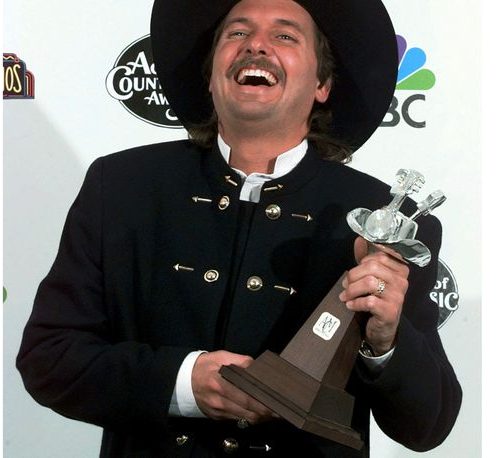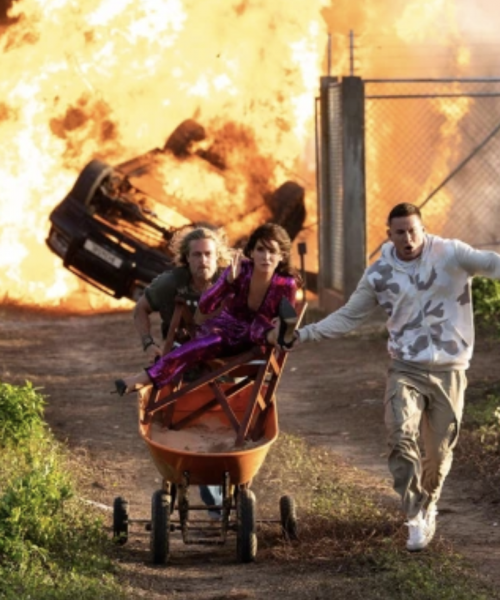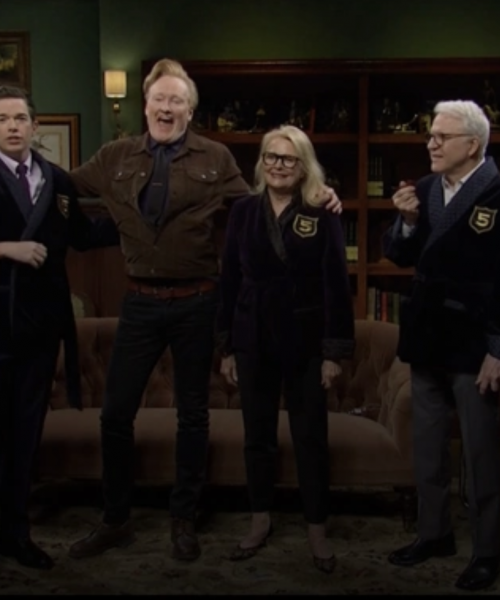BY ABID RAHMAN | HollywoodReporter.Com
Troy Warren for CNT #Entertainment
The rock star sold over 100 million records worldwide and appeared in over 50 movies and television series.
Meat Loaf, the rock star behind the monster-selling Bat Out of Hell trilogy of albums who was famed for his booming voice and theatrical stage presence and also made memorable appearances in The Rocky Horror Picture Show and Fight Club, has died. He was 74.
The singer died Thursday night with wife Deborah and daughters Pearl and Amanda at his side, his agent Michael Greene confirmed in a statement to The Hollywood Reporter. “We know how much he meant to so many of you and we truly appreciate all of the love and support as we move through this time of grief in losing such an inspiring artist and beautiful man,” the statement said. “From his heart to your souls…don’t ever stop rocking!”
No cause of death was given.
A larger-than-life character, who achieved success on Broadway as well as television and in movies, Meat Loaf rose to global fame with his debut solo album, 1977’s Bat Out of Hell, that went on to sell north of 14 million copies in the U.S. alone and became one of the biggest-selling albums of all time. The later entries in the trilogy, all featuring his signature, and lengthy, power ballads written and composed by the late Jim Steinman, would similarly go on to sell in their millions
Born Marvin Lee Aday on Sept. 27, 1947, in Dallas, Meat Loaf was the son of Orvis, a former police officer, and Wilma, a school teacher. “Meat” was a nickname his father gave him, the singer told Oprah Winfrey in 2016, explaining that he was “born bright red” and looked like “nine-and-a-half pounds of ground chuck.” The young Meat Loaf’s home life was disruptive, due to his father’s alcoholism and he spent some time living with his grandmother.
He left Texas for Los Angeles in 1967 to pursue a music career. His first band, Meat Loaf Soul, had a number of name changes, including Popcorn Blizzard and Floating Circus. and toured with acts such as the Who and the Grateful Dead, but only achieved fringe success. Working odd jobs, a chance encounter would lead to an audition for the L.A. production of the musical Hair.
On the strength of his performance in Hair, Meat Loaf was offered the chance to record his first album by Motown Records. Working with Stoney Murphy, Motown released the record Stoney and Meat Loaf in 1971, but once again success was limited and Meat Loaf returned to work on the Broadway production of Hair.

In the early 1970s, Meat Loaf met the writer Jim Steinman, and starred in his Vietnam War musical More Than You Deserve. The two then began a fruitful artistic collaboration, with Steinman writing and composing the music and Meat Loaf singing as well as bringing his charisma and stage presence as the frontman.
The duo started work on the operatic rock album Bat Out of Hell in 1972. It was not released until 1977, and went on to become a huge global hit, selling over 40 million copies. The album spawned the singles “Paradise by the Dashboard Light” and “Bat Out of Hell” and made Meat Loaf a household name.
Despite Steinman’s integral creative input, Meat Loaf, with his name on the album, was firmly front and center when it came to promotional materials and was the star attraction at live shows. The apportioning of credit and royalties for the success of Bat Out of Hell would lead to difficulties and even legal strife between the pair in later years.
“I know there’s people out there that think I was the Frankenstein monster to Jim’s Dr. Frankenstein, but that’s not how it went at all,” Meat Loaf told the New York Times in 2019. He added, “I never do anything the way the writer intended it. Jim wrote it, but it became my song.”
Meat Loaf and Steinman, who died in April 2021, patched up their differences to work on the 1981 album Dead Ringer and later the 1984 album Bad Attitude, but both were commercial failures. In 1993, Meat Loaf and Steinman worked together on a direct follow-up to Bat Out of Hell, titled Bat Out of Hell II: Back Into Hell, that featured the global number one hit single “I’d Do Anything for Love (But I Won’t Do That)” with a video directed by Michael Bay. The album went multiplatinum and would lead to a successful third entry, Bat Out of Hell III: The Monster Is Loose, in 2006.
Meat Loaf and Steinman’s final two collaborations included the album Braver Than We Are in 2016 and Bat Out of Hell: The Musical, which debuted in London’s West End in 2017 and played Off-Broadway in 2019.
An established Broadway talent before his music career took off, Meat Loaf branched out into movies in the early 1970s. He memorably played the role of the motorcycle-riding Eddie in the cult film The Rocky Horror Picture Show (1973), having played the character as well as Dr. Everett Scott in the musical version. In the film, Eddie sings the song “Hot Patootie – Bless My Soul” before meeting his demise.
To younger audiences, he gave a scene-stealing performance in David Fincher’s Fight Club (1999), playing the role of Robert “Bob” Paulson, a former steroid-popping wrestler suffering from gynecomastia. Hours after Meat Loaf’s death, “Robert Paulson” began to trend on social media as fans of the film paid tribute to him by posting stills and video and the valedictory quote from the film related to his character: “his name was Robert Paulson.”

His other notable film credits include playing Tiny in Wayne’s World (1992), the Alan Rudolph film Roadie (1980) the Patrick Swayze film Black Dog (1998) and cameos in Spice World (1997) and Tenacious D in the Pick of Destiny (2006).
On television, his long list of credits includes episodes of Elementary, Glee Nash Bridges, Ghost Wars, South Park, The Outer Limits and The Equalizer. He also appeared on The Celebrity Apprentice in 2011.
In later life, Meat Loaf suffered a series of health problems. He underwent heart surgery in 2003 and collapsed during a concert in Pittsburgh in 2011 and again in 2016 while performing in Edmonton, Canada.
Survivors include his wife, Deborah, and daughters, Pearl and Amanda.


































